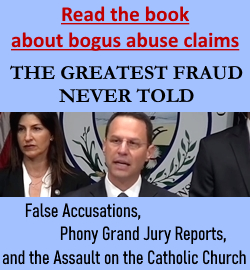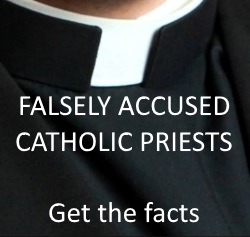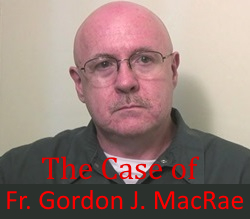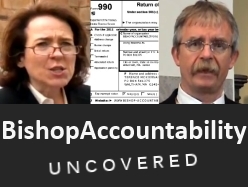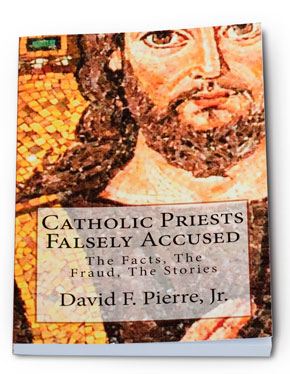Deliver Us From Evil is a 2006 film that purports to be a documentary about the church abuse crisis. Grant Gallicho, an associate editor for Commonweal magazine, penned a critique of the film in November of 2006. It was published by the Religion News Service in the Kansas City Star. He cited attorney John Manly for a "grossly incomplete rendition of Catholic doctrine." Here's a selection from what Gallicho wrote:
"[The film's] biases and arguments are mirror images of the ones deployed by those who defend the church’s behavior in the abuse scandal … [W]hen the film tries to tell the wider story of clergy abuse, it relies almost entirely on commentators with ties to victims’ advocacy groups — especially plaintiffs’ attorneys — who have a vested interest in some facts and conveniently ignore others. Their grasp of theology and history often seems tenuous. One talking head explains the depth of ecclesial alienation felt by victims like this: "The church teaches that the only way to salvation if you are Catholic is through the church, and if you are not in communion with the church you are damned to hell." This grossly incomplete rendition of Catholic doctrine is offered by John Manly, a victims’ lawyer. Patrick Wall, the only person identified as a “theologian” in the film, offers no corrective to Manly’s distortion. Why would he? He is a paid consultant to Manly’s law firm. The film doesn’t disclose that information."
Indeed, Manly's take on Catholic doctrine is quite erroneous. Here's what the Church actually teaches, from paragraphs 846-848 of the Catechism:
"Outside the Church there is no salvation"
846 How are we to understand this affirmation, often repeated by the Church Fathers? Re-formulated positively, it means that all salvation comes from Christ the Head through the Church which is his Body:
Basing itself on Scripture and Tradition, the Council teaches that the Church, a pilgrim now on earth, is necessary for salvation: the one Christ is the mediator and the way of salvation; he is present to us in his body which is the Church. He himself explicitly asserted the necessity of faith and Baptism, and thereby affirmed at the same time the necessity of the Church which men enter through Baptism as through a door. Hence they could not be saved who, knowing that the Catholic Church was founded as necessary by God through Christ, would refuse either to enter it or to remain in it.
847 This affirmation is not aimed at those who, through no fault of their own, do not know Christ and his Church:
Those who, through no fault of their own, do not know the Gospel of Christ or his Church, but who nevertheless seek God with a sincere heart, and, moved by grace, try in their actions to do his will as they know it through the dictates of their conscience – those too may achieve eternal salvation.
848 "Although in ways known to himself God can lead those who, through no fault of their own, are ignorant of the Gospel, to that faith without which it is impossible to please him, the Church still has the obligation and also the sacred right to evangelize all men."
Manly and Wall might want to pick up a copy of a Catechism at their local bookstore.
